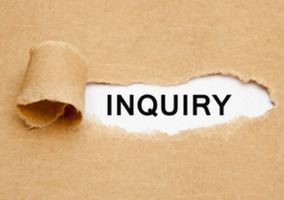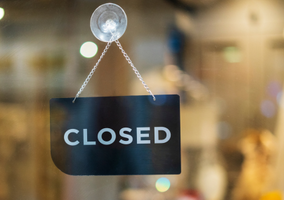Campaigners have urged the Charity Commission to investigate GambleAware over concerns around its independence and activities.
Annie Ashton, who lost her husband to suicide, and gambling expert Will Prochaska, are leading the campaign supported by the Good Law Project, which has threatened legal action if the regulator does not investigate.
The campaigners are arguing that GambleAware’s trustees are failing to comply with their duties to advance its charitable objects – namely, the provision of education about, and the prevention of, gambling harms for the public benefit.
They also question the charity’s claim to be independent from the gambling industry, which funds it through donations.
Campaigners wrote to the Commission to argue for a statutory inquiry and said failure to launch one risks damaging the public’s faith in the status of charities and charitable regulation.
GambleAware said the allegations made in the campaigners’ letter to the Commission were “both baseless and highly damaging” and said it was “robustly independent” from the industry.
A Commission spokesperson said: “We can confirm we have received a complaint relating to GambleAware.
“We are currently assessing the information available to us to determine if there is a role for the Commission.”
Campaigners: ‘It’s time for the Charity Commission to step up’
GambleAware is currently funded by voluntary donations from the gambling industry.
This funding arrangement was set up by the UK government, and GambleAware’s website states it has long called for change to this model.
A consultation on a statutory levy on gambling operators closed last year, which the charity welcomed.
Luke Ashton took his own life in April 2021 and a coroner last year concluded that his death was caused by a gambling disorder and that gambling firm Betfair missed opportunities to “intervene meaningfully” as his addiction worsened.
Annie Ashton said: “We can no longer stand by whilst the most prominent UK gambling harm charity hides the fact that the industry’s business model is based on profiting from harm and addiction and instead embeds stigma and victim-blaming narratives.
“I’m bringing this complaint as a widow, as a teacher, and as a concerned mother. We need our charities to speak truth and not pander to their funders’ interests.”
Prochaska, leader of the Coalition Against Gambling Ads, called on the Commission to strike the charity from its register.
“The gambling industry doesn’t discriminate in who it will prey on for profit, but it has plumbed new depths in its use of UK registered charities like GambleAware to shield itself from scrutiny,” he said.
“Charities aren’t supposed to be apologists for harmful industries, so the Charity Commission should strike GambleAware from the register.”
Ian Browne, legal manager at Good Law Project said: “It’s time for the Charity Commission to step up and investigate whether GambleAware is failing in its charitable duties. If they don’t, we’re prepared to sue.”
GambleAware: ‘We are robustly independent’
Zoë Osmond, chief executive of GambleAware, said the campaigners’ allegations were “both baseless and highly damaging”.
“We are robustly independent from the gambling industry, having long called for further regulation on gambling advertising and for the implementation of a statutory funding system to hold the gambling industry to account.”
Ben Howard, chair of the charity’s lived experience council, said: “For many years I struggled with gambling and I found recovery through the GambleAware commissioned National Gambling Support Network (NGSN).
“From this I was able to build a strong network of pre-support and treatment in under 48 hours, as well as sustained aftercare which I still use today in my fourth year of recovery.
“The NGSN not only provided me with life-changing guidance, but saved me from suicide in 2020.
“From this, I know first-hand just how essential and effective these services are and they continue to help thousands of people every year.
“Any claims that the services are unhelpful or inadequate are not only wrong, but also highly damaging and stigmatising for those needing support.”
Related Articles












